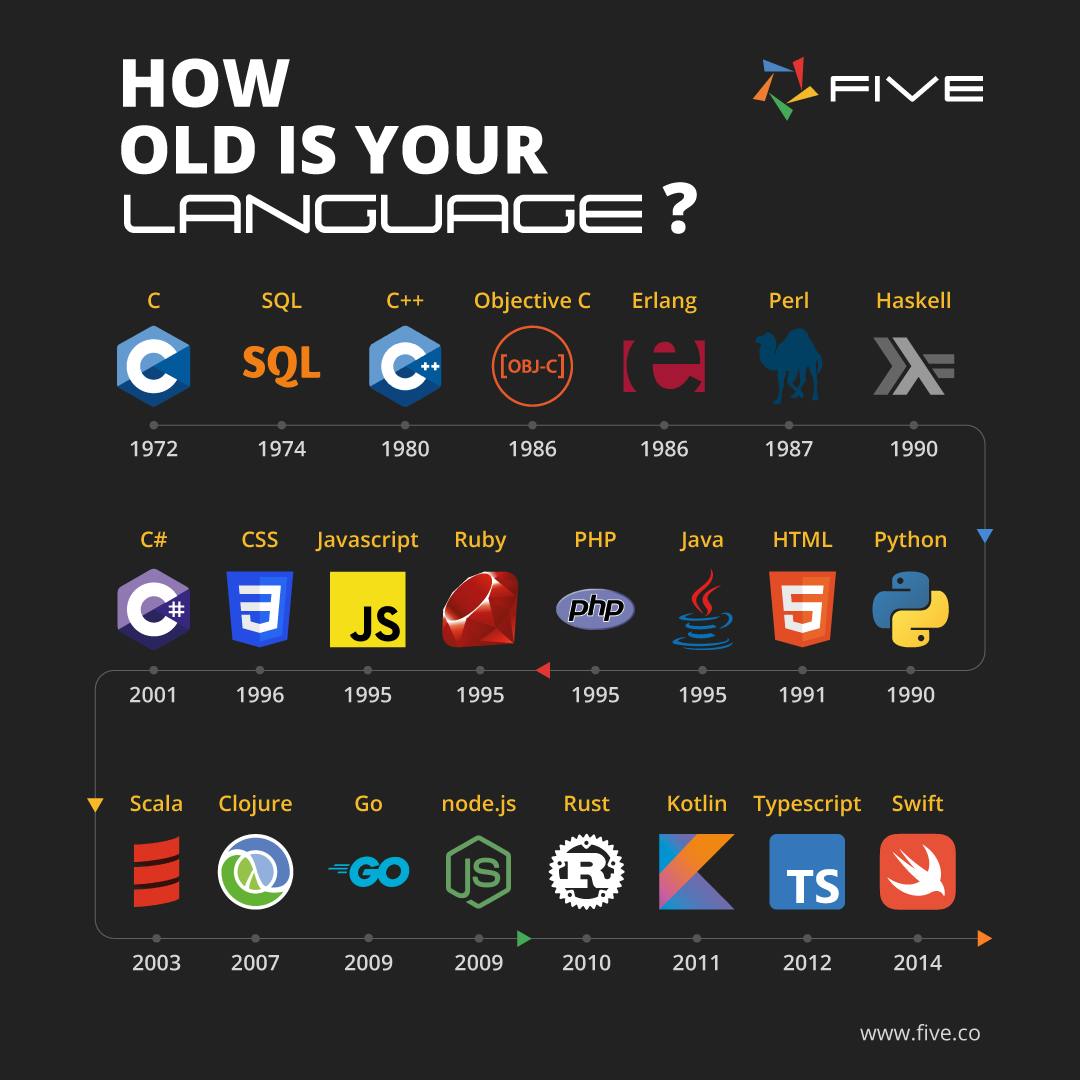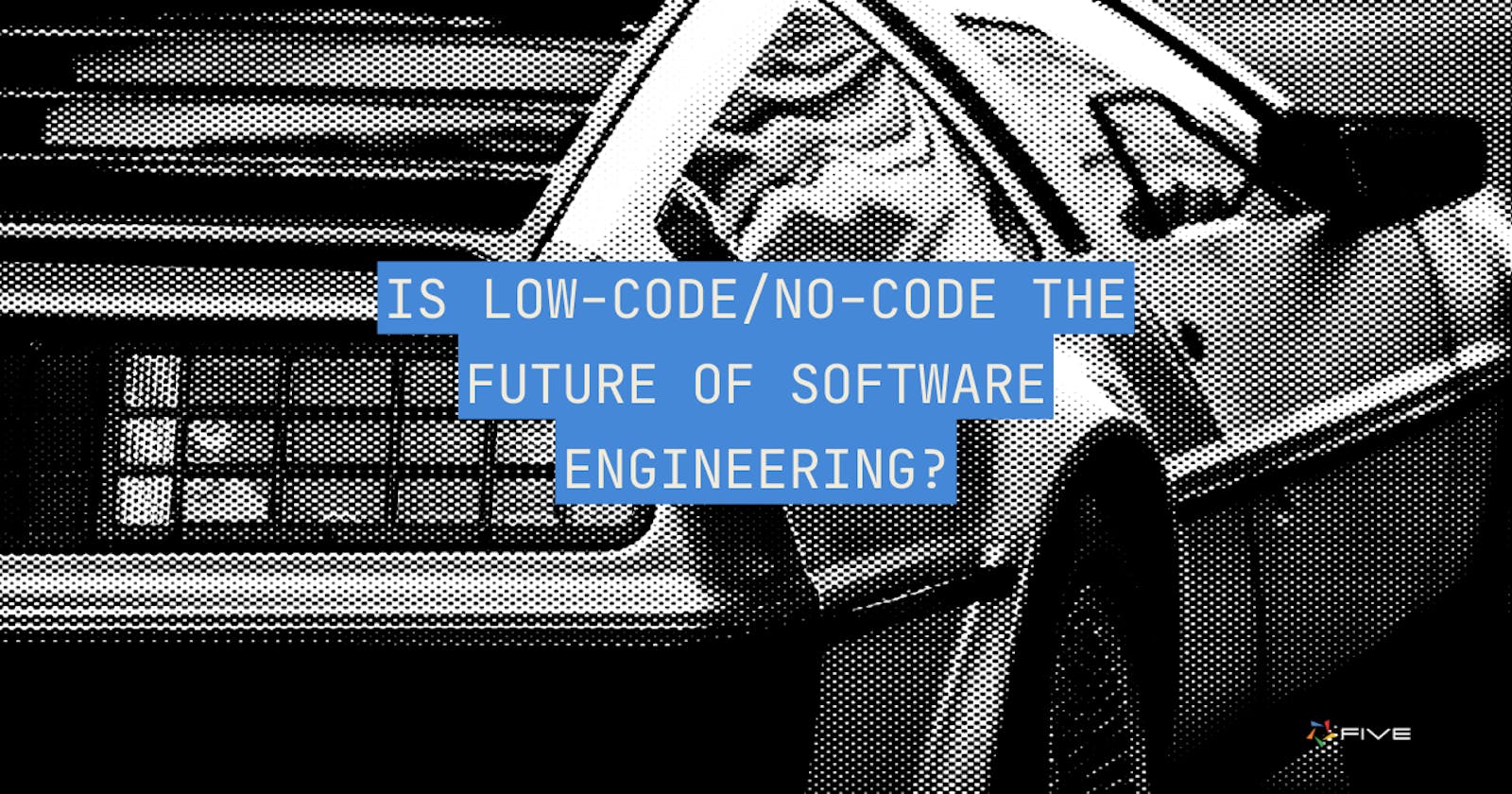Is Low-Code / No-Code The Future of Software Engineering?
“Is There A Library For This Or Should I Code It Myself?” 🤔 Every Software Engineer, Daily.
Replace “library” with “low-code tool” in the question above, and it’s easy to grasp what low-code & no-code tools are. They offer higher levels of abstraction to achieve more functionality faster. And without having to write raw code for everything.
Simply put, low-code & no-code tools are software that helps write software. They provide everything required to rapidly build & deploy web applications.

Is Low-Code / No-Code The Future Of Software Engineering?
To understand the future of software engineering, a good starting point is understanding its past. Let’s go back to 1942. That’s when German computer engineer Konrad Zuse invented the first high-level language Plankalkül. How has software engineering evolved since?
First, programming languages have become easier to read and write. 1s and 0s (or 1st Generation Languages) have evolved into 3rd and 4th Generation Languages, such as C#, JavaScript or Python. To understand just how much easier it is to write code today, check out this collection of “Hello World” programs in 603 different programming languages.

Second, today, fewer lines of custom code are required to write complex systems. Lines of Code (LoCs) used to be a good measure of a program’s complexity and a developer’s productivity. But today this isn’t the case anymore.
“Measuring programming progress by lines of code is like measuring aircraft building progress by weight.” — Bill Gates
Nowadays, the paradox of software engineering is that writing less means writing more. The faster we can achieve business outcomes, the better.
The Evolution Of Software Engineering Is A Story Of Simplification
The evolution of software engineering is a story of simplification. Low-code and no-code tools are just the next steps in this evolution. And so are other productivity-enhancing inventions that help manage the complexity of software engineering projects, such as smart code completion, better source control, or project management tools. Low-code and no-code make it easier & faster to build and deploy software. But just by how much?
“Low-code platforms can propel software development to 10 times the speed of traditional processes.” — Forrester
IT Consultancy Forrester says that low-code platforms can propel software development to 10 times the speed of traditional processes. According to IT Consultancy Gartner, low-code will be responsible for more than 65% of application development activity in 2024. And the low-code developer population is growing over 3x faster than that of traditional developers, according to IT consultancy IDC.
Based on software engineering’s evolution and these numbers, it’s easy to conclude that low-code / no-code will be a big part of the future of software engineering.
If you’d like to learn more about low-code software engineering or build your first app using low-code, why not download Five (for free!). Simply visit five.co.
Stay tuned for more topics related to no-code / low-code, such as:
Are low-code and no-code the same?
What are the limits of low-code and no-code?
And, will low-code make developers redundant?
Originally published at https://five.co on August 23, 2022.
